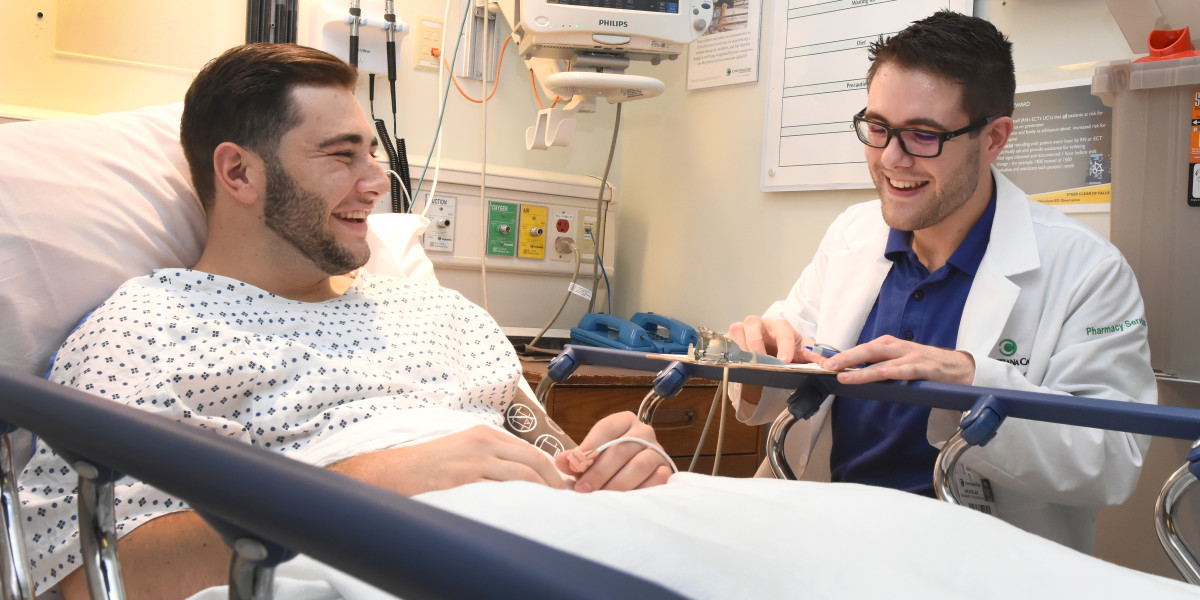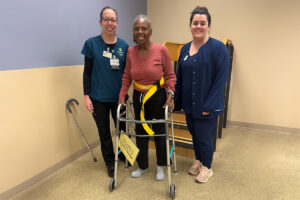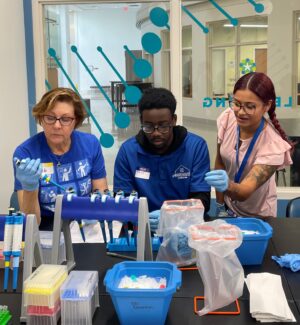A new initiative to improve timeliness and efficiency in obtaining medication histories is designed to improve patient care and outcomes by giving providers more detailed information early in the admission process.
It is estimated that more than 25 percent of hospital prescribing errors are due to incomplete medication histories obtained at the time of admission from the Emergency Department to the inpatient unit.
In a pilot program rolled out Sept. 14, certified pharmacy technicians were embedded 24/7 in the Emergency Department at Christiana Hospital, capturing medication histories on high-risk patients.
“A complete and accurate medication history improves medication safety, as it may reveal reasons for a patient’s illness such as an adverse drug event or nonadherence to drug therapy,” said Donna Walsh, Pharm.D, director, Clinical Pharmacy Services. “It also may prevent interrupted or inappropriate drug therapy during a hospital stay.”
Christiana Care defines a medication history as the record of medication a patient is actually taking at the time of hospital admission or presentation. Obtaining the best possible medication is a dynamic process warranting multiple sources of medication information and seamless communication between pharmacy and nursing colleagues.
In addition to interviewing patients and family members, pharmacy technicians use other resources such as medication lists or notes from outpatient providers, discharge medication orders from recent hospitalizations, transfer orders from other facilities and pharmacies where the patient fills prescriptions.
“Ideally, the medication history is available for the admitting providers,” Walsh said. “If the information is incomplete,
it is clearly documented and handed off to the nurse for follow-up.”
Unlike a medication history, medication reconciliation is defined as the process of identifying the most accurate list of a patient’s current medicines, including the name, dosage, frequency and route, and comparing them to the current list in use in order to identify discrepancies and document changes.
The first and perhaps most significant challenge in regard to medication reconciliation is getting the initial list of medications correct and in a timely fashion.
“Improving medication histories early in the admission process is designed to improve the accuracy of medication reconciliation at transitions of care,” Walsh said. “Both are key steps in actively creating a discharge process that is more efficient and effective for our patients, families, physicians and other health care providers.”



